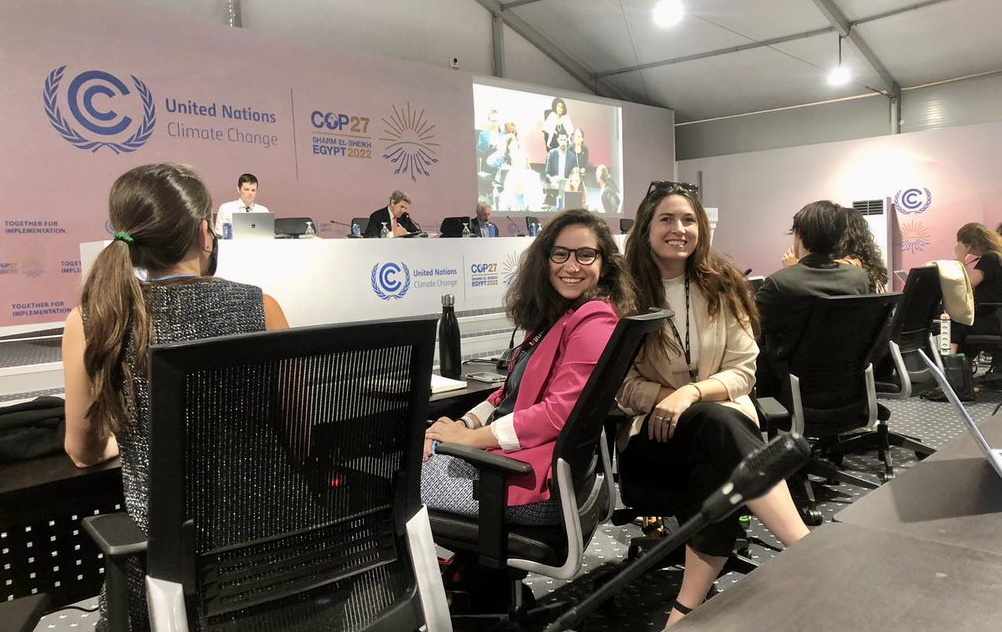Restructuring frameworks at COP27
Emma Hibbard
Emma with other Tufts delegate Miriam at US civil society briefing by John Kerry
COP27 was a whirlwind of negotiations, panels, side events, and conversations. Being able to actually sit in on some of the negotiations cemented the significance that each and every word has in the final text. The negotiations were extended and then concluded after I had returned to the U.S., and left some feeling of defeat. The failure to include a complete phaseout of fossil fuels and their subsidies signaled to some that the goal of limiting warming to 1.5 degrees is slipping out of reach.
Despite this, what really struck me at COP27 was the way people globally are reimagining the structures and frameworks which we are using to combat climate change. The challenges presented by climate change are rapidly evolving and simultaneously local and global. The existing political, societal, and technical frameworks that we have are not adequate to combat climate change at the scale and speed that is necessary. From creating enabling conditions for energy decarbonization through regulatory reform to a multi-stakeholder sustainable ocean solutions partnership, many of the people, organizations, and governments at COP27 are working to change this.
Emma at COP27
Globally, the front-page story was the loss and damage fund. For the first time, a financing facility was created to acknowledge the acute and severe losses and damages caused by climate change to the most vulnerable nations and establish a fund to address these. The financing discussions also involved a restructuring of the multilateral development banks, through which international funds are accessed, to mobilize private funds and create funding streams that are timely and accessible.
I went to COP with a focus in equitable energy transformations and, in spite of the fossil fuel difficulties in negotiations, there was progress being made. One highlight is the Just Energy Transition Partnerships (JETPs) that are being created as multilateral structures for equitably decarbonizing energy systems of fossil fuel-dependent countries. There is an existing South Africa JETP and the Indonesia JETP was announced during COP27, a partnership with other countries (Japan, United States, European Union, and Germany to name a few) to transition energy generation away from coal and toward renewable energy. These are nascent with much work to be done, but the formation of partnerships outside of conventional spaces to leverage billions in funding while focusing on equity is a significant step in mitigating emissions.
Ultimately, some of the most impactful conversations I heard were centered around how to make space at all scales for leadership from the most vulnerable and historically marginalized groups. Complementing this were conversations about how to create climate science access and planning practices that adjust to communities, enabling meaningful and locally led adaptation and mitigation.
Emma with Dr. Brenda Mallory, Chair of the White House Council on Environmental Quality
Like most environmental work, I found COP to be both sobering and inspiring. At an implementation COP, it was clear that at all scales stakeholders were working to widen our understanding of the structures we do work in. I left with a better understanding of the pace and collaboration necessary to work across scales and reform our political, infrastructure, financial, and social systems to combat climate change. ∎
Emma Hibbard is AG23, is earning a joint master’s degree in Civil and Environmental Engineering and Urban and Environmental Planning and Policy .



